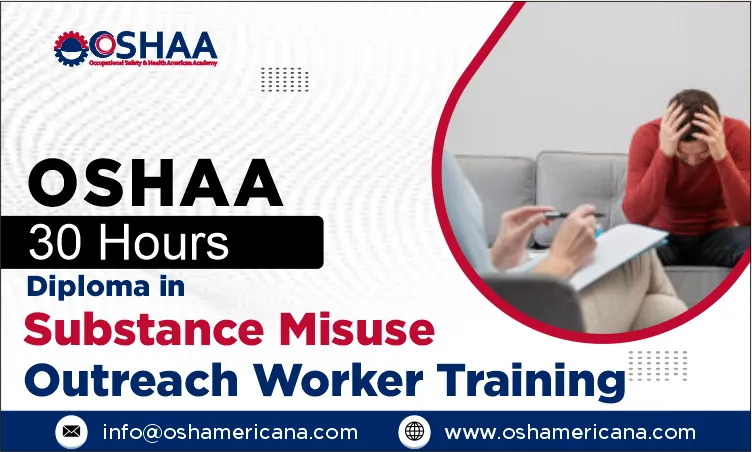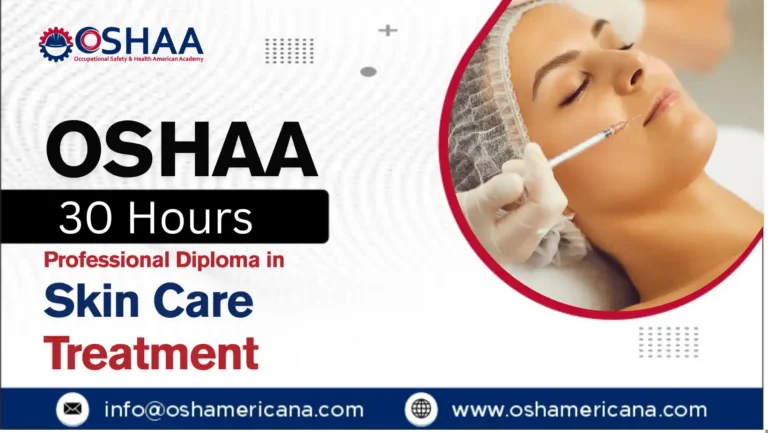The ageing population is growing rapidly, increasing the demand for skilled professionals who understand the complexities of elderly care. The OSHAA 30-Hour Professional Diploma in Gerontology is designed to equip individuals with the knowledge and skills needed to support older adults in various healthcare and social care settings. This diploma provides a comprehensive foundation in gerontology, covering ageing processes, elderly care management, and ethical considerations in working with older adults.
Gerontology is the study of ageing, focusing on the physical, psychological, and social aspects of growing older. As people live longer, there is a greater need for professionals who can provide high-quality care, support independent living, and promote the well-being of older adults. This course is ideal for those working in healthcare, social care, and community services, as well as individuals interested in developing a career in gerontology.
The OSHAA 30-Hour Professional Diploma in Gerontology is an essential qualification for those working with or caring for older adults. This programme provides a deep understanding of ageing, elderly health conditions, and best practices in care and support. Whether you are a healthcare professional, social worker, or someone interested in making a difference in the lives of older individuals, this diploma will equip you with the necessary skills to provide high-quality, compassionate care.
OSHAA 30-Hours Professional Diploma in Gerontology
Study Units
Learning Outcomes
Introduction to Gerontology and Ageing (2 Hours)
- Understand the concept of gerontology and its significance in healthcare and social care.
- Recognise the demographic trends and challenges associated with an ageing population.
- Identify key theories of ageing and their application in elderly care.
Biological and Psychological Aspects of Ageing (3 Hours)
- Understand the physical changes that occur with ageing and their impact on health.
- Recognise common psychological and cognitive changes in older adults.
- Learn strategies to support emotional well-being and mental health in ageing individuals.
Common Age-Related Health Conditions (5 Hours)
- Identify common chronic illnesses affecting older adults, such as arthritis, cardiovascular diseases, and diabetes.
- Understand the management and prevention of age-related health conditions.
- Learn best practices for medication management and healthcare support for elderly individuals.
Dementia and Cognitive Impairment (5 Hours)
- Understand different types of dementia and their symptoms.
- Learn effective communication techniques for interacting with individuals with cognitive impairments.
- Develop strategies for providing person-centred dementia care and support.
Elderly Care and Support Services (4 Hours)
- Learn about different care options, including residential, community, and home-based care.
- Understand the role of caregivers in supporting daily living activities for older adults.
- Explore strategies for ensuring dignity, respect, and quality care for elderly individuals.
Mental Health and Emotional Well-being in Older Adults (3 Hours)
- Recognise the impact of loneliness, depression, and anxiety on older adults.
- Learn techniques to promote social engagement and emotional well-being.
- Understand the role of mental health professionals and support networks in elderly care.
Ethical and Legal Considerations in Elderly Care (5 Hours)
- Understand the legal rights and protections for older adults.
- Recognise ethical dilemmas in gerontology and how to address them professionally.
- Learn about safeguarding measures, consent, and confidentiality in elderly care.
Promoting Independence and Quality of Life (3 Hours)
- Explore strategies for encouraging active ageing and self-sufficiency.
- Learn about assistive technologies and mobility aids that support independence.
- Understand the importance of personalised care planning to enhance the well-being of older adults.
- Enhanced Career Opportunities – Gain a recognised qualification to pursue roles in healthcare, social care, and elderly support services.
- Comprehensive Knowledge of Ageing – Understand the biological, psychological, and social aspects of ageing to provide effective care.
- Practical Skills in Elderly Care – Learn essential caregiving techniques, including dementia care, mental health support, and daily assistance.
- Increased Awareness of Common Age-Related Conditions – Recognise and manage health conditions such as arthritis, cardiovascular diseases, and cognitive impairments.
- Improved Communication and Relationship-Building Skills – Develop the ability to interact effectively with older adults, their families, and healthcare teams.
- Ethical and Legal Understanding – Gain knowledge of safeguarding, patient rights, and legal responsibilities in elderly care.
- Focus on Promoting Independence and Quality of Life – Learn strategies to help older adults maintain dignity, autonomy, and well-being.
- Workplace Readiness – Acquire skills that are directly applicable in care homes, hospitals, community care settings, and home-based care roles.
- Higher Employability in a Growing Sector – Stand out in the job market with specialised training in gerontology, a field with increasing demand.
- Foundation for Further Studies – Use this diploma as a stepping stone to advanced courses in gerontology, nursing, or social care.
The OSHAA 30-Hour Professional Diploma in Gerontology is designed for individuals who are passionate about elderly care and want to build a rewarding career in the field. This course is ideal for:
- Healthcare Professionals – Nurses, healthcare assistants, and medical staff looking to specialise in geriatric care.
- Social Workers and Caregivers – Those working in community services, residential care homes, or home-based elderly support.
- Dementia and Mental Health Support Workers – Individuals supporting older adults with cognitive impairments and mental health conditions.
- Care Home and Nursing Home Staff – Employees responsible for the daily care and well-being of elderly residents.
- Family Members and Informal Caregivers – Relatives and friends providing care for ageing loved ones who want to improve their knowledge and skills.
- Volunteers and NGO Workers – Individuals working with charities and non-profit organisations focused on elderly support services.
- Students and Aspiring Professionals – Individuals interested in pursuing a career in gerontology, healthcare, or social care.
This diploma is suitable for both beginners and experienced professionals who want to develop their expertise in ageing and elderly care.







